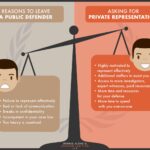
The Importance of Ensuring the Fair Treatment of Employees in the Gig Economy
The Rise of the Gig Economy
The gig economy has exploded in recent years, with more and more people opting for freelance work over traditional employment. Companies such as Uber, Lyft, and TaskRabbit have created platforms that allow individuals to work on demand and provide services to consumers. While the gig economy offers flexibility and earning potential, it has also brought up questions about worker rights and fair treatment.
The Issue of Misclassification
One pressing issue in the gig economy is the misclassification of workers as independent contractors rather than employees. Independent contractors generally have less legal protection and different tax requirements than employees. Companies in the gig economy may label workers as independent contractors to avoid providing benefits such as health insurance, paid time off, and workers’ compensation. This can lead to exploitation and unfair treatment of workers.
The Case of Uber
The issue of worker classification has been brought up in several legal cases involving gig economy companies. For example, Uber has faced scrutiny in several states over how its drivers are classified. In 2016, a federal judge in California ruled that Uber drivers should be classified as employees rather than independent contractors. This decision was based on factors such as the level of control Uber exerted over drivers and the centrality of drivers to Uber’s business model.
The Need for Protections for Gig Workers
Gig workers need protections that ensure fair treatment and compensation. While freelancers enjoy greater flexibility than traditional employees, they may also lack job security and benefits. Some protections that could benefit gig workers include:
- Minimum wage laws: Ensuring that gig workers are paid at least the minimum wage for their work would provide a baseline for fair compensation.
- Worker classification: Clarifying the legal definition of independent contractor vs. employee would help prevent misclassification and ensure that workers receive the protections they are entitled to under the law.
- Bargaining rights: Allowing gig workers to unionize and collectively bargain would give them more power to negotiate for better treatment and compensation.
The Role of the Legal System
The legal system has a responsibility to protect the rights of all workers, including those in the gig economy. Judges and lawmakers should strive to clarify worker classification and ensure that gig workers are not exploited. Recent legal cases, such as the California ruling regarding Uber drivers, demonstrate that courts are starting to recognize the importance of protecting gig workers. Legislative action could help solidify and expand these legal protections.
Conclusion
The gig economy has opened up new opportunities for workers and companies alike. However, it is important to ensure that the rights of gig workers are protected. Misclassification as independent contractors can lead to unfair treatment and lack of protection, while legal reforms can help ensure fair compensation and proper classification. The legal community has a key role to play in shaping the future of the gig economy and ensuring that workers’ rights are upheld.
Originally Post From https://www.westernslopenow.com/business/press-releases/ein-presswire/728106399/nlpc-calls-on-convicted-felon-senator-bob-menendez-to-resign-from-the-senate-or-be-expelled
Read more about this topic at
Information Technology Insights
Information Technology (IT) Insights and Trends


